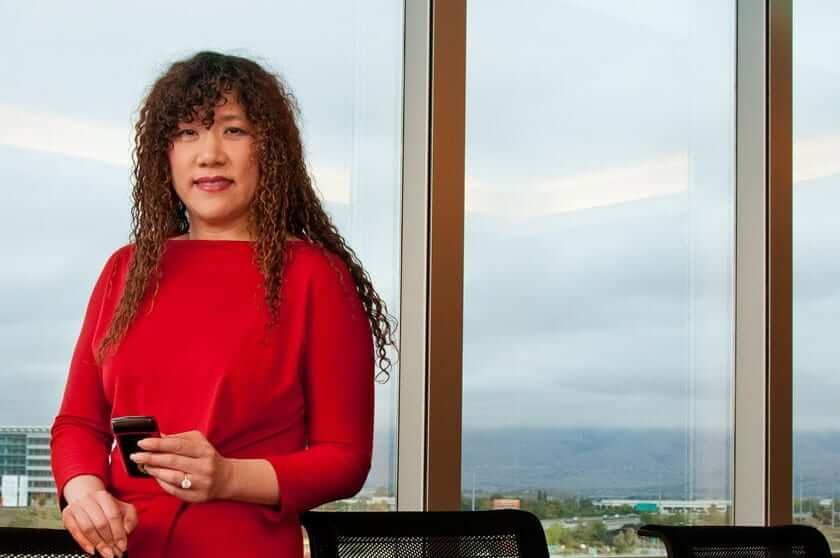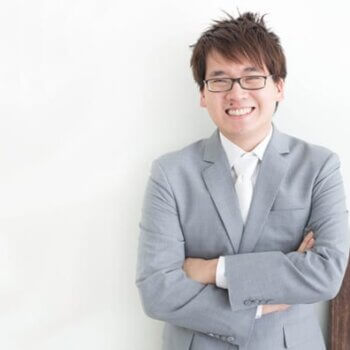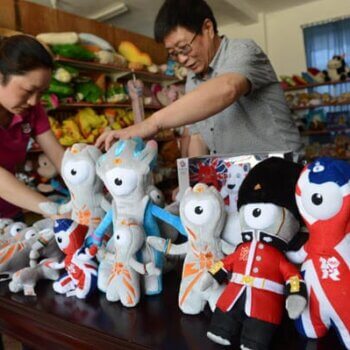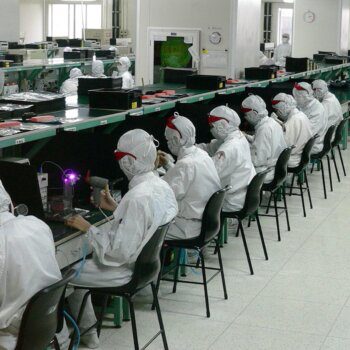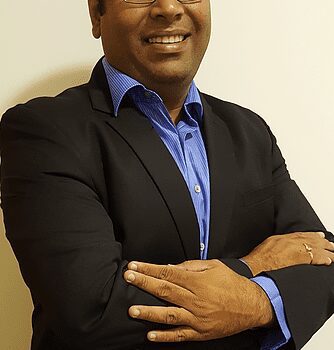Weili Dai is one of the most successful women entrepreneurs in the world today. Widely considered a technology visionary, she is the only woman co-founder of a global semiconductor company, and since it began in 1995, she has helped Marvell’s rise to become one of the top semiconductor companies in the world. Ms. Dai’s business acumen, strategic thinking, product leadership, endless passion and personal network have contributed greatly to Marvell’s fast rise to success. Her close relationship with her customers and the foundation of the trust shared with them has given her a strong reputation for professionalism and integrity throughout the technology industry. Ms. Dai has served a pivotal role in creating some of the Company’s most important strategic partnerships and under her leadership Marvell’s technology has become an integral component of many of the world’s most important products in enterprise, communications, mobile computing, consumer and emerging markets. She has also become a driving force in expanding access to technology in the developing world and an ambassador of opportunity between the US and China, particularly in the arenas of education and green technology. Ms. Dai has become a powerful advocate for the better use of technology to improve the human condition.
For her contributions to technology and society, Newsweek named Ms. Dai one of the “150 Women Who Shake the World” and was recently profiled by CNN International for the Leading Women Series: Leading the Female Tech Charge, Leading Women Principles Fair and Care,Educating for Future Success, and Leading Women Inspire Others. Additionally, Forbes Magazine lists Ms. Dai as one of the “World’s 100 Most Powerful Women”.
The Global Semiconductor Alliance (GSA) recently recognized Ms. Dai along with her husband Sehat Sutardja, CEO of Marvell, with the prestigious 2013 Dr. Morris Chang Exemplary Leadership Award. Ms. Dai and Dr. Sutardja were selected because of their exceptional success in creating Marvell, their individual contributions to today’s modern semiconductor age, as well as the talents and expertise they’ve continuously leveraged to address and overcome pressing global issues like education and smart energy.
Prior to being named company President in 2013, Ms. Dai held a number of significant positions within Marvell since co-founding the company: she has served as Chief Operating Officer, Executive Vice President, and General Manager of the Communications Business Group. She has also been a Director of Marvell Technology Group Ltd. and Corporate Secretary of the Board. Before Marvell, Ms. Dai was involved in software development and project management at Canon Research Center America, Inc. Ms. Dai holds a Bachelor of Science degree in Computer Science from the University of California at Berkeley. Ms. Dai was selected as the first woman commencement speaker at the University of California, Berkeley, College of Engineering graduation ceremony on May 12, 2012.
In your own words what is Marvell?
Marvell is a global leader in providing complete silicon solutions and Kinoma® software enabling the “Smart Life and Smart Lifestyle.” From mobile communications to storage, Internet of Things (IoT), cloud infrastructure, digital entertainment and in-home content delivery, Marvell’s diverse product portfolio aligns complete platform designs with industry-leading performance, security, reliability and efficiency. At the core of the world’s most powerful consumer, network and enterprise systems, Marvell empowers partners and their customers to always stand at the forefront of innovation, performance and mass appeal. By providing people around the world with mobility and ease of access to services adding value to their social, private and work lives, Marvell is committed to enhancing the human experience.
How did you come up with the idea of Marvell?
Marvell was founded by my talented husband and me several years after we graduated from U.C. Berkeley. Even when we were students at school, we already had the idea of starting our own business and building a marvelous company that brings the most innovative technologies and most advanced products to the industry. Thus the origin of our company’s name.
Could you walk us through the process of starting up Marvell?
Marvell was founded in 1995. The first market we entered was the hard drive controller business where there were already many players including large size multi- national corporations . With our very innovative and advanced technology and invention, we quickly became a leader in the storage industry, where today we are No. 1 in the market.
Built upon the success we also expanded our technology leadership into other industries including networking, mobile, digital entertainment and Internet of Things (IoT). We have also built strong and unique software capabilities such as the Kinoma® platform to provide complete end-to-end solutions to our global customers and partners.
What’s the developmental direction since startup?
When Marvell started, it was only a handful of us with some used desks and used chairs. For example I found our first customer Seagate through the Yellow Page and 411 calls. Today, we are a top global fabless semiconductor company with more than 7,500 employees and 18 R&D centers all around the world. We are ranked among the top global innovators and our broad customer base includes some of the best known brands such as Apple, BMW, Canon, Cisco, Ericsson, Google, HP, Lenovo, Microsoft, Samsung, Sony, Toshiba, Western Digital and ZTE. And, I am very happy to report that Seagate has still been a great customer of ours throughout these many years.
What kind of feedback did you get for Marvell so far?
When we talk to people about our company, they are often surprised that Marvell’s technology is inside so many popular devices such as the Google Chromecast and Chromebook, Xbox and PlayStation, Samsung Galaxy phones and tablets, and HP printers. From storage, networking to computing and communication, Marvell is a “one stop shop” for total semiconductor solutions. I am very proud of our invention and innovation and of our passion for customers’ success.
What is your strategy against your competition?
I believe competition is a very good thing for our industry. It keeps us continuously improving and innovating for the benefit of all consumers. The example I often share with my employees and my customers is the race track. We welcome other participants to join the race and compete to be the fastest. If we can collectively move the industry forward and speed up the progress, it is a great thing for our society.
How do you plan to stay relevant in this industry?
The high-tech industry is under constant evolution. Today’s semiconductor is no longer about discrete components; rather it requires end-to-end total solutions and close collaboration with other key players in the ecosystem. In 2013, Marvell enabled Google in launching the very innovative and affordable Chromecast, which was named No.1 Gadget of the Year by the TIME Magazine. To me it is a role model of hardware-software cooperation and a perfect example of what breakthroughs we can achieve when semiconductor players, internet companies, content providers and manufacturing partners all work together and lead the new way of ecosystem collaboration.
What is the future of the industry in your opinion?
My vision for our industry is to enable all consumers around the world with the “Smart Life and Smart Lifestyle.” To realize this, it requires seamless mobile computing that provides access to information at any time in any place. It also requires high quality content delivery that enables live video streaming on any screen, large or small. In addition, the emerging IoT technology allows ubiquitous deployment of sensor networks and adds “smarts” to almost everything. I am very proud of Marvell’s great innovations and our leadership in all these key technologies and our unique capability in connecting them all together to provide a seamless total experience to the customers and end consumers.
Was there anything that disappointed you initially?
When you start a company, it is natural to have the feeling of doubt. That is OK. But, entrepreneurs should believe in themselves. For me, the key is to follow my passion, trust my intuition and focus on delivering the result. That’s how I’ve built my company and will continue to run it in the further.
What do you think about being an entrepreneur in Asia? Is it harder or easier, why?
There are some differences depending on where you start your company. I think a lot of Asian businesses are conglomerates with family heritage. On the other hand, entrepreneurship in the U.S. is like a blank canvas where you can start from new.
In a place like Silicon Valley, there is a great support system to be an entrepreneur, filled with universities, researchers, investments and great talents from all around the world.
Today’s world is globally connected…it doesn’t matter where you start. What matters is focusing on global success. For the future, company’s access to information and ability to connect globally will play key roles for entrepreneurs. I foresee that there will be far fewer differences between Asia and U.S. start-ups in the future.
You will need to follow your passion, and successful businesses require commitment, hard work and long-term view.
What is your definition of success?
In general, I believe success is about making a positive impact to better the lives of consumers around the world.
‘Passion’ and ‘Integrity’ are the foundation for all success; ‘Fair’ and ‘Care’ are essential principles of all successful leaders.
Why did you decide to become an entrepreneur?
When I was a young girl growing up in Shanghai, I often saw my parents as mentors or quite simply entrepreneurs to me and my siblings. They constantly believed in us and our potential to be good human beings and make a difference in this world. I appreciate how my parents raised me with a lot of encouragement and confidence. They taught us to be selfless, act for others and acknowledge the good in what we can do in our lives. It’s because of my parents that I knew I too wanted to be an entrepreneur and change the world. My upbringing helps us to have a freedom of vision and innovation, as well as make a positive impact to the world.
What do you think are the most important things entrepreneurs should keep in mind?
Once again, commitment, passion and believing in themselves make up the important foundation for entrepreneurs.
In order to grow big and be a successful company, we knew we needed to be concerned with the global aspect. The structure of Marvell is a global company and we knew we had to build a highly scalable structure. As a result, Marvell has over 20 global locations around the world. There also are more than a half dozen in Europe, Israel and Asia – the biggest being in the United States and the second biggest in Shanghai. While it’s easy to think of the here and now – it’s pivotal to think long-term and impact for global economy.
In your opinion, what are the keys to entrepreneurial success?
My “fair and care” philosophy – supporting my business partners, employees and customers as I would my own family – has enabled me to build business relationships across the globe from Silicon Valley to Shanghai that have paid off tenfold for Marvell.
Any parting words of wisdom for entrepreneurs out there?
Follow your passion and drive your business with a lot of dedication and commitment. Never underestimate yourself and know that you will achieve it. Anyone can make a difference in this world.
Connect
Website: http://www.marvell.com/
Twitter: https://twitter.com/marvellsemi
Facebook: https://www.facebook.com/pages/Marvell-Semiconductor/96462647125
